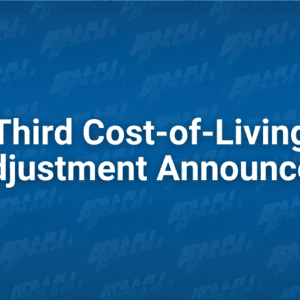July 12, 2022
The PSRA and Postal Retirees
(This article first appeared in the July/August 2022 issue of the American Postal Worker magazine)
This time of the year we recognize the anniversary of Medicare, signed into law in July 1965 and Social Security, created in August 1935.
We celebrated the April 6 passage of the 2022 Postal Service Reform Act (PSRA) after over 15 years of legislative activism, and we achieved this legislative success by working together for the good of all workers, retirees, and the public. While signing the Bill into law, President Biden said “Today, we enshrine in law our recognition that the Postal Service is fundamental.”
The PSRA addresses the finances and operations of the U.S. Postal Service (USPS). This bill repeals the requirement that the USPS annually prepay future retirement health benefits, which created a liability the for USPS. It also requires the Office of Personnel Management (OPM) to establish the Postal Service Health Benefi ts Program (PSHBP) within the Federal Employees Health Benefits Program (FEHBP), under which OPM may contract with carriers to offer health benefits plans for USPS employees and retirees. In addition, the bill also provides for coordinated enrollment of retirees under this program and Medicare.
Effective January 1, 2025 current postal employees who become Medicare eligible as retirees, will enroll in Medicare. Medicare then becomes their primary insurance and their postal-only FEHBP plan becomes their secondary insurance; these changes are projected to save the USPS nearly $50 billion over the next decade. All postal workers and postal retirees will be able to keep their current FEHBP and participate in the annual FEHBP open season.
Beginning April 1, 2024, during a six (6) month special enrollment period, those current postal retirees age 65 and over with Federal Employee Health Benefit Plan (FEHBP) who did not join Medicare Part B will be able to join Medicare B and have the “late enrollment” penalty waived. These changes are expected to save postal retirees money by eliminating out-of-pocket medical expenses and by mitigating future premium increases. In coordination with OPM, and no later than 18 months after enactment (April 2022), the USPS must establish a Health Benefits Education Program to notify and provide information about the PSHBP to annuitants and employees as well as respond to any inquiries.
The PSRA also ensures that the USPS will continue to provide six-day-delivery long into the future, and the USPS can provide certain nonpostal products and services, that reasonably contribute to the costs of the USPS and meet other specifi ed criteria, by entering into agreements with state, local, or tribal governments in other areas.
Celebrate The Anniversary of Social Security
Tell Congress to Pass the “Social Security Fairness Act” now, during the 117th Congress, before the end of 2022! The Social Security Fairness Act repeals the Windfall Elimination Provisions (WEP) enacted by Congress in 1983 and the Government Pension Offset (GPO) enacted in 1977. The WEP and GPO continue to adversely impact millions of retired federal, state, and local public servants who are not reaping the full retirement benefi ts that they paid for during their working life. These retirees qualify for Social Security benefi ts by working and paying the required rate into Social Security for least ten (10) years and they also receive a federal or state pension from other employment that did not pay into Social Security. Unfortunately, these retirees are denied an equitable social security benefi t for their contributions because WEP and GPO greatly reduces their social security benefits.
Contact your representative on Capitol Hill – write letters or postcards, and call 1-202-224-3121 or use the APWU line 1-844-402-1001, to speak to your congressional representatives.
Tell Congress that retirees deserve fair returns on their investment in the Social Security system.
Ask your congressional representatives to co-sponsor these and move these Bills to the Floor in order to vote for passage of H.R. 82 in the House and S.1302 in the Senate.
Remind your congressional representatives that older Americans also vote – there is power in our vote.



